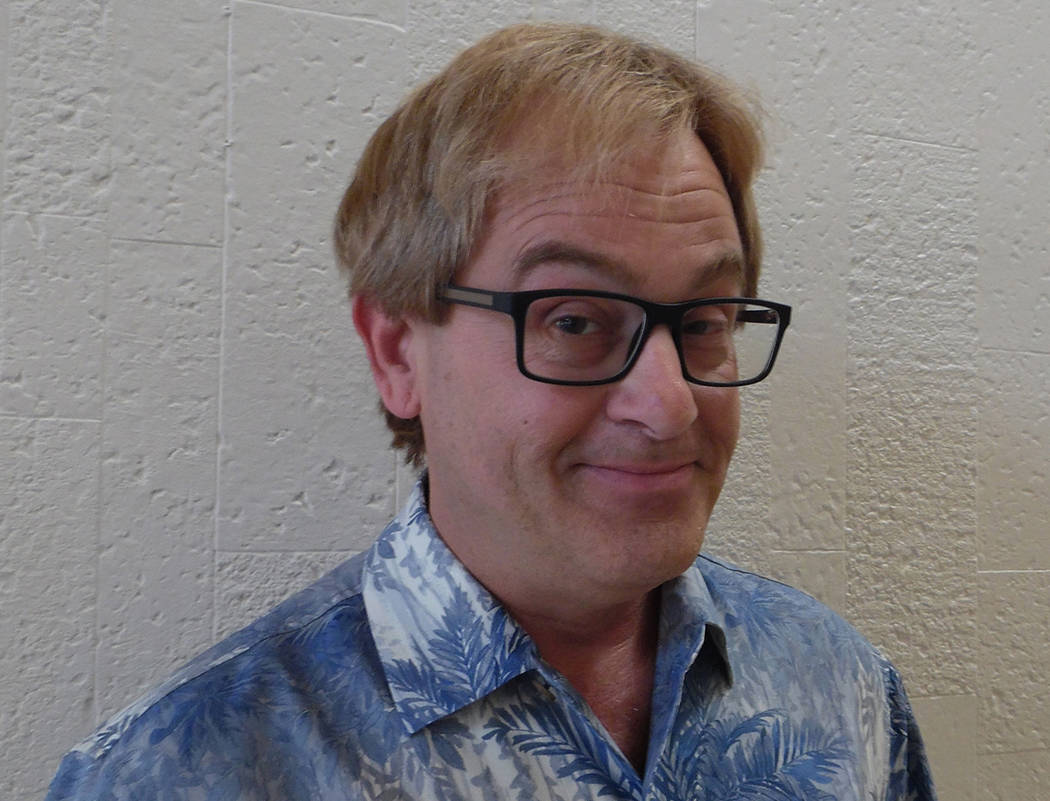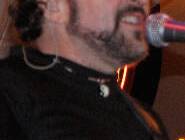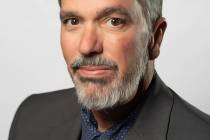Hurricanes define Houston
Having lived in Houston for 30 years before my move to Nevada in 2011, I am happy that my local friends now know what a real monsoon looks like, but not too happy about the circumstances because I still have tons of friends and family back there.
Not long before Hurricane Harvey someone in Boulder City excitedly posted Facebook video of our drizzling count-the-drops-per-minute rain and called it a monsoon. I replied, “If no one is kayaking down the middle of the street, it’s not really raining.” Wow! For once I’m not happy to be so prescient.
Hurricanes have defined the Houston of today. Founded in 1836, for its first 64 years it was largely a backwater town that had failed as a real estate speculative venture until the Great Hurricane of Galveston, which stands today as the worst natural disaster in American history in terms of lives lost — more than 8,000 souls.
Back then there was no hurricane warning system, and it just hit. No one had a chance to prepare. The rivers that flowed down Galveston’s streets were not mere floodwaters, they were choked with the debris of houses and commercial buildings. Orphanages collapsed and trains were caught going over the intercoastal waterway. Galveston’s only weatherman lost his wife to the storm because he didn’t see it coming.
That was Sept. 8, 1900. We are only a day from the anniversary of the storm that destroyed the largest and oldest city in Texas, Galvez’s Town, seat of the original Spanish government in the region. Mardi Gras, which was rooted in Galveston at the time, was returned to New Orleans as a result of the devastation. And the devastated Port of Galveston caused Houston’s leaders to build their own, larger port, the Port of Houston, which largely defines the economic activity of Houston even to this day.
Fast forward 60 years or so. I became aware of the “hurricane issue” in the 1970s when the nascent Texas Monthly magazine, in tandem with the radical tabloid Texas Observer, ran articles to the effect that Houston had only been able to grow into a large city because no serious hurricane, not even 1961’s Hurricane Carla, had traversed its interior and laid waste to its neighborhoods. When a real storm hit, the storyline went, that would be the end of semitropical Houston and probably Galveston, too.
Until Hurricane Harvey it never worked out that way. We had countless tropical storms; I even moved residences in the middle of one. We had hurricanes Carla, Alicia and Allison, all devastating but none long-lasting in effects. The debacle of Hurricane Rita in 2005, a small storm, was only because of hysteria following Hurricane Katrina in New Orleans, not Rita itself.
Then came Hurricane Ike in 2008, the year before I moved. With Ike we began understanding the gloom and doom of the Texas Monthly prognosticators all those years before. With Rita and Ike it became personal.
Rita in 2005 was not too bad, but until the last minute the worst looked possible. I wasn’t able to evacuate because I stayed behind to shelter computer equipment at my client’s site in a high-rise office tower. When it became impossible to drive to my uncle in Austin, my ex-wife and her husband offered me shelter with his extended family — loads of people, four dogs, three cats and a bird of some sort. Though we had experienced acrimony from time to time, the storm brought us together. My son drove to his girlfriend’s place in Huntsville maybe 80 miles north, and it took 12 hours to get there on the car-clogged Interstate 45.
Ike was another story. My ex was living in Shoreacres with her husband, their daughter and our daughter in the home where she grew up, almost spitting distance from Galveston Bay. They sent my daughter into Houston to ride out the storm with me and her brother.
Two days later I visited that home, which I had visited so often over the years. I had never lived there, but I found the tears flowing when I looked at the house, which had taken in 2 feet of water and was clearly destined for elimination.
Every house up and down the street, and all the nearby streets, was marked by water-rotted trash brought to the curb for trash pickup. You don’t have to live in someone’s shoes to feel that pain. So it is in the aftermath of all these storms. In Shoreacres, 58 percent of the homes were totaled by the insurance companies that year.
Back in Houston, my kids and I rode out Ike, which hit mostly while we slept, but we were wired in anticipation of the event. It was exciting, no doubt about it. As the heavy winds came in, I walked up to the top of my parking garage and watched electrical transformers all over the neighborhood explode. My kids reported watching the explosion of the five transformers at Walmart next door. The electricity was out when we went to sleep that night.
We didn’t flood or experience wind/rain damage because we were sheltered by the walls of the mighty Walmart. Homes in the floors above us were seriously damaged by wind and rain. But we had electricity back in 11 hours because we were on Walmart’s subgrid, and Walmart was much faster than Reliant Energy at replacing its transformers. The richest parts of town went four weeks without electricity, so I’m having trouble hating Walmart these days.
My stories about Harvey are not quite as personal, since neither I nor my children live in Houston any longer, but they remain poignant. My best buddy, who lived in New Orleans and owned numerous residential properties there when Katrina hit, had to work hard to save his nine houses in 2005. The final concession came when he and his wife moved with their family to The Woodlands, an hour north of Houston, only a few years ago.
He travels to New Orleans regularly to service his properties, so when Harvey hit he was there and the wife and kids were in The Woodlands; they fled to Dallas for the storm. He was trapped and could not drive or fly out to help them. That is still true today; they have returned home but he is still stuck in New Orleans. Their home is intact, so the worst is behind them.
In 2011 my ex and her husband had moved to Baytown, north of Shoreacres on the bay, after receiving their insurance settlement for the house they lost to Hurricane Ike. Baytown is home to the ExxonMobil refinery that is the second largest in the country, which remains shut down because of flooding. Their home is a quarter mile from Cedar Bayou, which, at 52 inches, received the most rain of any bayou in the region. This time they lucked out, but without much room to spare: The homes on the low end of their street, 8 feet lower, flooded. They were spared. Had they not been, they would have been done and left the region.
Almost all of my friends made it through unscathed, but everyone had close calls.
How do people go through these events and not change their ways? Most people, I think, have a connection to where they live and do not want to end it. That connection makes it difficult for them to see how hard their future will be unless they take action. My son thinks people will start moving from Houston, but I doubt it is that simple because people move to Houston for work, not because it’s a great place to hang out.
I predict businesses, especially national operations, will see the future and start moving out of the region, and employees will follow. Exxon, for instance, is headquartered in Irving, near Dallas, and can move a lot of its office-based operations there.
Living in Nevada, it would be foolish for us all to get complacent simply because that particular disaster could not happen to us. Other disasters lurk:
We are in a 15-year superdrought that has dropped Lake Mead to historically low levels. Las Vegas political leaders continue to try to grow the region even though the demand of water resources is unsustainable.
Everywhere there are sustainability challenges. When will we learn from ours?
Dale Napier is a fifth generation native Texan now drying off in Nevada.










